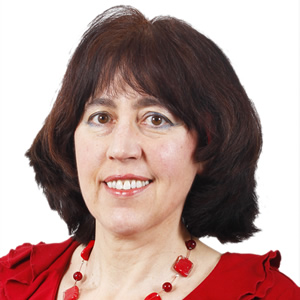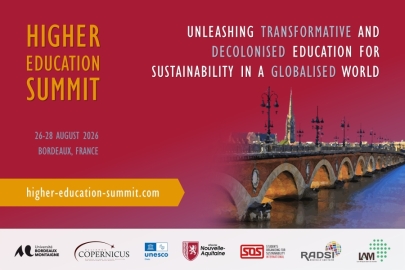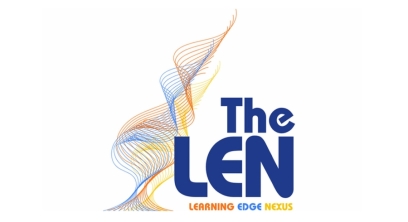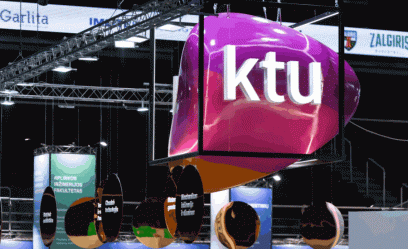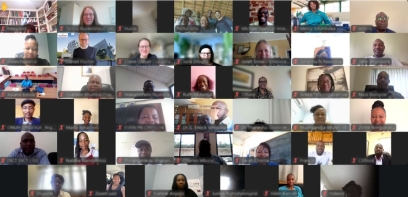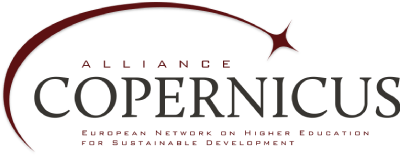#8 05/2021
Paquita Perez Salgado
A passionate scientist and teacher dedicated to ensuring that ICT serves sustainable development
| _ |
"Competences for stakeholder engagement, teamwork, strategic action, political action, implementation, communication, and adopting ethical practices are important to be able to translate stakeholder diversity into effective interventions towards sustainability." |
Ingrid Mulà (IM) We have known each other for quite a long time. I can’t remember when we first met, but I recall being very curious to find out how someone with such a Spanish name and surname had ended up in the Netherlands. Can you tell us your story?
Paquita Perez Salgado (PPS) In the 1960s the big building companies in the Netherlands were experiencing rapid expansion, and they went searching for professionals in Spain, Portugal, and Italy. I came as a toddler with my parents to Amsterdam. Here I encountered an open attitude, with a broad variety of possibilities to be intellectually and socially active. I enrolled in the regular Dutch school system, and the Spanish ministry of education at that time facilitated innovative distance education, so I ended up with both Dutch and Spanish diplomas. I think my appreciation for distance education unconsciously started there. After having worked at three other Dutch universities (Amsterdam, Groningen, and Twente), I now work at the Open University of the Netherlands, at the Faculty of Science in the Department of Environmental Sciences. I teach Physics in Environmental Sciences and Research Approaches. I conduct research on sustainability competences and knowledge concepts for sustainability in higher education. As for my name, Paquita: it is a diminutive in Spanish, but for the Dutch it doesn’t have this association, so I just stayed with it.
IM With the COVID-19 pandemic, it seems that there is growing interest in and need for exploring how learning for sustainability can be facilitated through ICT and online means. You have been a UNESCO Chair in Knowledge Transfer for Sustainable Development supported by ICTs since 2013. What lessons learned from all these years of practice and research would you like to underline?
PPS Let me give you a topical example, which in my opinion shows the lessons learned over the last 10 years. At the very start of the pandemic, in February 2020, we were running the international Short Learning Program (SLP) entitled “Climate Change: from global to local action”. Since it was conceived as an e-learning programme, students were able to continue studying without us having to change the didactics. In the end, 75% obtained their certificate. Being able to run a programme completely online proved to be a big advantage in Corona times. Although some students had to adapt to their new ‘study’ environment and the effect of Corona restrictions, in general they did not encounter big problems.
From our longer-term experience of offering online courses, I’d say that what can do the trick is a combination of:
• clearly defined individual self-study assignments,
• high quality and timely feedback from the teachers on these assignments,
• a prescribed study pace,
• the use of online video-conferencing (or similar tools) when students have to work together, and
• a well-organized and student-friendly elo (electronic learning environment).
IM Thanks for these important and simple lessons! Beyond the topic of e-learning, what is really interesting in the case you mention is that you offer a university course that aims at enhancing “local action”, something that is rare in a higher education environment. Can you tell us a bit more about the SLP?
PPS The SLP is an e-learning programme (300 study hours) at Master’s level that addresses climate change from a variety of perspectives, including the scientific, political, economic, and social perspectives. It has a global international impact, allowing virtual mobility and exchange of cultures. It targets professionals, managers, and technicians from all organisations, from the private and public sectors. The emphasis is on the actions that organisations can implement to decrease their carbon footprint and the corresponding behaviors they can implement, in accordance with the recommendations of the 2015 United Nations (UN) Agreement in Paris and the UN Sustainable Development Goal (SDG) no. 13, Climate Action. This year, students from the following countries enrolled: Portugal, Spain, the Netherlands, Brazil, Angola, Mozambique, Kenya. Because the SLP is based on Open Educational Resources (OER), some of the course material is accessible to citizens worldwide, also after the end of the programme. The SLP was developed within an Erasmus+ Project, in a cooperation between three distance-learning universities, Universidade Aberta – UAb (Portugal), Open Universiteit of the Nederlands – OUNL, and Universidad Nacional de Educación a Distancia – UNED (Spain).
A 2-minute video provides a quick introduction to the programme; and everyone can have access to some of the educational resources.
IM This is very interesting – will you be offering this Master’s course again on a regular basis?
PPS The three European universities that offer the Short Learning Program (12 ECTS [European Credits], i.e. 4 courses with 3 ECTS or 75-80 study hours each; in total 300 hours) are currently working on developing an agreement on the certification and the price. This is a complex process, since higher education circumstances and (subsidizing of) life-long-learning arrangements differ between the countries.
IM Indeed, cooperation across country borders is complex when it comes to qualification standards; we look forward to hearing more about this innovative programme! Last time we spoke, you and your colleagues were engaged in a large project focusing on the development of intervention competence in sustainability professionals. Can you tell us a little bit about this project and its results?
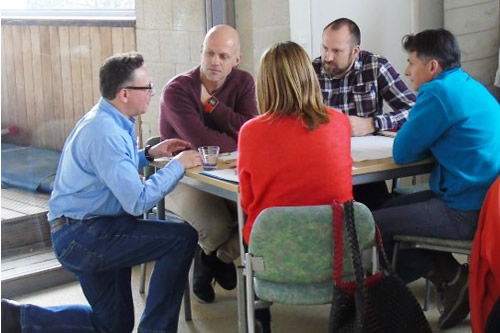 PPS We had workshops on “Competences for sustainability” with environmental and sustainability professionals in the Netherlands and Belgium. These were face-to-face meetings, focussing on what professionals report is needed in terms of knowledge, skills, and attitudes to obtain an actual change towards sustainability in their daily work or projects.
PPS We had workshops on “Competences for sustainability” with environmental and sustainability professionals in the Netherlands and Belgium. These were face-to-face meetings, focussing on what professionals report is needed in terms of knowledge, skills, and attitudes to obtain an actual change towards sustainability in their daily work or projects.
Due to the Covid-19 pandemic we are looking for possibilities to organize online follow-ups of the workshops. We hope to develop these events with partner organisations of sustainability professionals in several countries, with the aim of taking into account the specific situation in each country. An online survey was distributed in March 2021 to continue gathering data, exchanging ideas, sharing knowledge, and making lived experiences visible, as well as connecting these to scientific knowledge.
We hope that readers of this interview perhaps know of organisations in their country or province that would be willing to be active in this valorisational research project as well. Let us know! We think it is really important to investigate and make explicit the experiences of sustainability professionals, to present these in scientific articles, and to translate them into training and workshops and flyers for the professionals themselves.
 |
A call for contributions |
IM It would be wonderful if this CA Conversation could lead to involvement of additional partners among the COPERNICUS Alliance network in your practice and action-oriented project. Could you provide a little bit more insight into the kind of competences for sustainability that were listed by the professionals who participated in the meetings?
PPS With the sustainability professionals in Belgium (see photo above), we found among other things that competences for stakeholder engagement, teamwork, strategic action, political action, implementation, communication, and adopting ethical practices are important to be able to translate stakeholder diversity into effective interventions towards sustainability.
IM Was there agreement among professionals and academics? If there was disagreement, what discussions did this lead to?
PPS One of the investigators is both an academic and a sustainability professional (practitioner). The process of establishing results is iterative, and involves feedback and accord at several moments. This process ran from January 2019 to March 2021. In the project we strive to be scientifically rigorous while developing and defining a set of competences that makes sense for and can be used by professionals.
IM To sum up, what would be your recommendations for HEIs that believe it is necessary to bridge the gap between science and practice in such an innovative way? And what should important funders and shapers of the academic landscape such as the European Research Council be more aware of?
PPS What we notice from our research is that to achieve successful changes in sustainability, several aspects should be better addressed at higher education institutions. In the present constellation, both higher education and professional work situations acknowledge that communication is a sine qua non competence, and we agree with that.
We also suggest that higher education institutions should train additional competences at both the individual and team levels. Training of important existing academic competences such as critical thinking, system thinking, and future thinking should be complemented with training of competences that enable students to learn how to collaborate with different stakeholders, how to take strategic and political action, and how to successfully implement an agreed upon project or decision.
IM Many thanks for your insights and encouragement to participate in such endeavors!
Reference: Perez Salgado, F., Abbott, D., Wilson, G. 2018. Dimensions of professional competences for interventions towards sustainability. Sustainability Science 13(1):163–177. https://doi.org/10.1007/s11625-017-0439-z
Contact Paquita Perez Salgado:
Download full conversation as pdf

